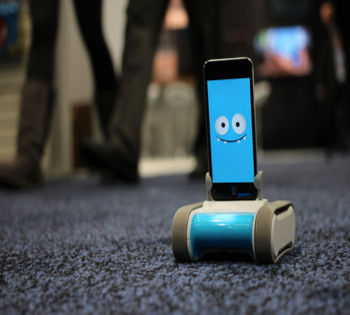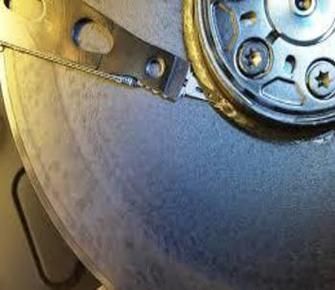You can no longer ignore the direction the planet is taking. Everything has gone technical, digital, and virtual if you know what I mean. Wherever you look, there is some sort of tech advancement that runs the place and ensures everything is in order. Even in our homes, it is also now filled with various tech contrivances that promise to enhance efficiency and make our lives easier and more comfortable.
This has its limitations, though, given that modern tech gadgets cost a lot and not everyone can afford them. But still, the demand continues to grow as other businesses come up with cheaper variants that the masses can afford using the existing technology that is taking the world by storm right now. While some argue that the existence of smartphones has rendered other technologies obsolete, it actually is the exact opposite.
 Smartphones will continue to be a staple many can’t live without and demand for parts and other similar technologies are just as popular too. It is a domino effect that isn’t entirely bad for the automation market where other tech gadgets like robots will also benefit from as the public becomes increasingly dependent on these pieces of machinery in doing just about every task they have in their day-to-day. Can you remember the last time you didn’t use any piece of technology and survived a day without it? It’s likely a long time ago, right? For the past years, smartphones have become increasingly popular and the rise of the web and of social media made people even more interested in owning a smart device because it is our ticket to the world.
Smartphones will continue to be a staple many can’t live without and demand for parts and other similar technologies are just as popular too. It is a domino effect that isn’t entirely bad for the automation market where other tech gadgets like robots will also benefit from as the public becomes increasingly dependent on these pieces of machinery in doing just about every task they have in their day-to-day. Can you remember the last time you didn’t use any piece of technology and survived a day without it? It’s likely a long time ago, right? For the past years, smartphones have become increasingly popular and the rise of the web and of social media made people even more interested in owning a smart device because it is our ticket to the world.
The smartphone hasn’t killed machinery makers after all. Apple Inc. has yet to release a new version of its iPhone, but the trough in demand looks to be ending anyway. The business cycle lives.
Exhibit one: Fanuc. The Japanese automation giant gave a rosier outlook than three months ago, raising its estimates for full-year operating and net income by more than 5 percent. Costs are expected to be down 2 percent. The company, which is typically conservative in its forecasts, predicted a more than 15 percent gain in net income for the first half through September.
That’s a turnaround from a severely downbeat outlook in April. Then, Fanuc said operating profit would fall 34 percent for the year versus consensus estimates of 9 percent growth. Investors took it to mean the smartphone boom was over. Fanuc’s stock plunged as much as 14 percent the next day.
(Via: https://www.bloomberg.com/view/articles/2018-07-25/smartphones-didn-t-kill-fanuc-s-robots-after-all)
Despite if any problems with the economy or trade concerns, it is impossible to picture out the world without robots and smartphones in it anymore. Not only does it satiate our desire to enjoy the many wonderful things the world has to offer, it is also a practical choice since a lot of opportunities can be found on the web. People have now taken their business online because that is where everybody is. Can you imagine all the machines powering countless servers that make the World Wide Web go round? Or the innumerable devices that people personally own or use in their schools and offices? These technologies are undoubtedly our present and future and there is no changing that anymore.
Investors have been dumping shares of Japan’s industrial automation leaders, fearing a sustained slump. The reality is that a more nuanced picture is emerging, as fiscal first-quarter earnings may show starting this week: Demand for smartphones, robots, construction machinery and farm equipment isn’t in sync, causing customers’ capital-expenditure cycles to diverge.
Key to the current pall is an imminent retreat in smartphone demand, a key driver of sales for machinery makers. Shares of Fanuc Corp., the biggest supplier to the companies that make and assemble handsets, have dropped almost 40 percent from their January peak. Japan’s orders from the precision equipment industry in China, the category that includes smartphone makers, plummeted by more than 60 percent in May.
Suppliers to Apple Inc. buy Fanuc’s machines to produce iPhone casings. So when the Japanese company provided depressing guidance last quarter, the stock tumbled along with those of peers. Fanuc reports Wednesday.
While it is expected that some industries go up and down because of trade concerns and demand going down, the thing is that it will likely recover and keep up with the changes because technology is no longer just a luxury but a necessity in our daily lives. There may be slumps now and then but they do not usually last and recovers after a few months or so. Of course, unlike other commodities, people do not change cellphones after a few months of use although there are people who are like that because they can afford it. The majority do not necessarily follow smartphone trends and make use of their devices for several years before actually changing to a newer model.
It is not only smartphones that require technical parts but computers too especially in the unfortunate situation wherein your device gets broken and you’ll need one fixed or replaced. These mistakes https://www.harddriverecovery.org/blog/hard-drive-failure-recovery-three-major-user-mistakes/ can lead to hard drive failure and the need for data recovery services like https://www.harddriverecovery.org/clean_room.html that can hopefully revive your device or at least salvage whatever data they can.
The Future With Robots and Smartphones See more on: The Hard Drive Recovery Group Blog
source https://www.harddriverecovery.org/blog/the-future-with-robots-and-smartphones/

